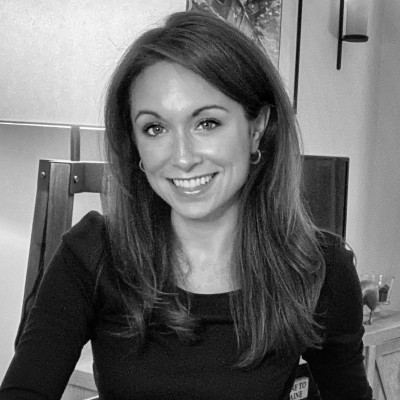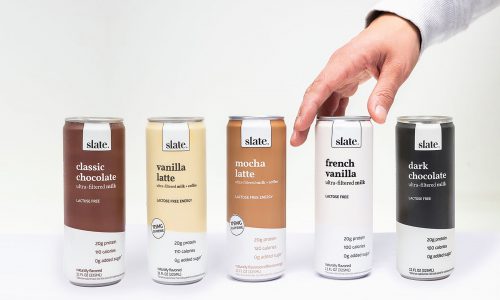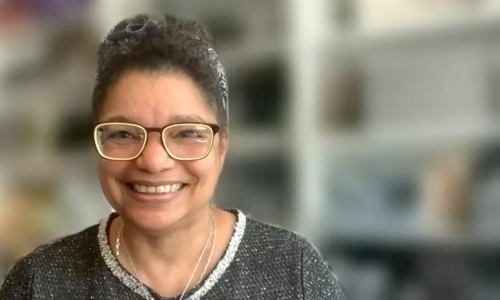ForceBrands co-hosted a Power Hour with FounderMade on Wednesday afternoon to discuss redesigning brands of the future. The webinar brought together trailblazing thought leaders across food, beverage, beauty, wellness, and cannabis. Josh Wand, Founder and CEO of ForceBrands, led the panel that included Benjamin Witte, Founder and CEO of Recess; Mike Messersmith, General Manager of OATLY; Georgie Greville, Co-Founder and Creative Director of Milk Makeup; Amanda Baldwin, President of Supergoop!; John Haugen, Managing Director and Founder of 301 INC; and Gunner Winston, CEO of dosist.
Each panelist shared unique insights and provided actionable advice about how they’re navigating the new normal and strengthening their businesses amid a global pandemic. FounderMade Founder Meghan Asha kicked off the Zoom-powered webinar and turned it over to Wand who then led panelists through individually targeted questions along with an ice breaker and a closing question for all.
Wand directed the opening question to all panelists asking them to describe their leadership style in one word. The responses varied: “listener” (Haugen), “empathy” (Winston), “customized” (Baldwin), “connectivity” (Greville), “visibility” (Messersmith), and “innovative” (Witte).
Following the ice breaker, Wand asked Baldwin of Supergoop! to share the most profound change she’s seen in the market as a leader and how she’s adapted to it.
“I’ve always thought of myself as someone who does really well one-one-one, reading a room, reading energy, and feeling what’s happening and reacting to it,” Baldwin said, adding that those skills are easily compromised over Zoom meetings. “It took me a while to try and get some of the same signals through conversations over Zoom that I would otherwise get in person. I’ve learned that you can’t take anything for granted. Life is virtual now. How you’re communicating and interacting has elevated my leadership game and has forced me to think differently. I still have the same goals but I’m going to have to achieve them in a different way.”
She added that Zoom calls have introduced a new kind of collaborative spirit among her team members. “We are bonded in a different way. I think that’s what adversity and challenges do for a team, and that’s something that I am grateful for.”
The next question was directed at Haugen, who has a unique investment platform within General Mills. He was asked to share some of the biggest changes he’s seen that will fundamentally shift how he approaches investing in brands in the future.
“We’re spending a lot of our time and focus right now supporting our current brands,” he said. “We had a town hall about a week ago with all 10 of our current 301 INC brands. Our aspiration is always to be that indispensable partner for growth. These are the times when people look to see how authentic you really are.”
Haugen added that he has leaned on bringing leaders together to discuss timely topics like liquidity, customer dynamics, and team engagement, to provide additional resources and support for the brands. “If we’re not doing a good job on that, it doesn’t matter how we’re thinking about investing in other brands. We have to make sure we put our partners front and center in terms of everything we do.”
He added that a lot of the changes that we’re starting to see in the industry will only accelerate coming out of COVID-19’s disruption. “There was already a movement toward core fundamentals of business — what are the products that we believe are truly sustainable? What are businesses that are sustainable that have solid margins and can withstand what could be a trough in the economy? The fundamentals are going to be challenged coming out of where we are. But I also think a lot of the trends you’re seeing will be accelerated, like shifting purchases online. More than ever, purpose and authenticity are going to be absolutely critical with brands. People need basic solutions and they’re going to need to solve a myriad of problems coming out of this. Brands that really stand for something and brands that are meaningful in the lives of consumers are the ones that they’re going to continue to support as they get back on their own two feet.”
Wand followed up and asked if Haugen still had plans to deploy capital and invest in high growth companies given the uncertain climate.
Given the essential business of the industry, Haugen highlighted, “We’re a food company. We’re investing largely in food brands, not just human food but also pet food. And those are going to be ongoing trends. We continue to be open for business and continue to support the growth of these great brands.”
On the subject of core challenges amid the pandemic, Wand asked Messersmith of OATLY how he’s adapting to the changing manufacturing environment and taking care of hourly workers. Messersmith, who oversees a factory in Southern New Jersey and a corporate office in Manhattan, says the main challenge relies on creating the right environment for OATLY’s employees.
“We have a responsibility as a company and as an industry to create the optimal environment to allow people to believe that when they leave their family to come in and do their job, that they’ll be able to come home safe,” he said. “It’s a combination of educating our employees in a way that didn’t exist before, how we think about staffing and minimizing the number of people that need to be there to still get the essential job done, and how we invest in and get ahead of safety procedures.”
He concluded by saying, “It’s important that we’re able to provide this product. We take that seriously and try to do the right thing, be human about it, and keep doing better.”
Wand pivoted the conversation to Witte to ask him how he’s building a digital-first, e-commerce brand that is becoming a lifestyle category all its own. Witte, who credits his background in Silicon Valley for his unique approach to CPG brand building, explained how Recess is being built as a narrative-driven brand.
“I think of CBD as the caffeine of the 21st century — a commoditized functional ingredient that’s going to sit at the base of a functional beverage category that’s going to enable a feeling. In this case, calm and relaxation. That idea drove a lot of our strategy for building the brand,” Witte said. “I saw an opportunity to innovate in brand marketing. In the past, brands were built on a shelf and today, they’re built on your phones and that’s changed everything. I truly looked at Recess as a digitally native beverage brand so we launched purposely as direct-to-consumer only.”
Witte also shared his observations about how most people look at digital and e-commerce as potential sales channels, but few people look at them as brand building channels. “Beverage is all about brand awareness. The biggest brands win, and brand and culture are both built on your phone today.”
On the subject of innovation, Wand asked Gunner to share how dosist, a leader in the luxury cannabis space, is innovating during a crisis.
“Innovation is such a loosely used word,” Gunner said. “For us, innovation is the core of what we do. We consistently look to transcend the category that we’re in. For us, to be innovative, you can’t respond in a crisis. You already have to be innovative — that has to be the bloodlines of your company. Then it just becomes a question of what you want to adjust because everyone has had to make some adjustments in their cost structure. Our mission and strategic vision drive our innovation. Our mission is to empower people to naturally manage their health and happiness. Our vision is to become a global aspirational CPG business.”
Innovation means understanding the risks associated with potentially not receiving a proper return on investment, Gunner noted. “We made a decision to focus on the consumer. For us, the consumer dictates why we bring products out. We just launched two major products and we have a third coming in June — our biggest launch ever. It’s gut-wrenching because it costs money, but it’s the right thing to do. dosist is trying to create a forever brand, and to become that, you have to innovate and continue to focus on the consumer.”
Wand pivoted the conversation to Greville to discuss how she’s developing authentic give-back initiatives and how they’re impacting others in the organization.
“The weird silver lining to this time is that we’ve been stripped down to our humanity and we are left with what is essential to us — what our values are,” Greville said. “It comes back to purpose: what is in your brand DNA that makes you essential? That is what is going to resonate out into the world and create your own brand equity.”
Greville shared that Milk Makeup has very distinct values intact — a clean brand that’s radially inclusive.
“It’s never been a better time to come together around values,” she said. “The flow of giving and receiving is the future. The old capitalism doesn’t work. Conscious capitalism does work. And it’s how we define conscious capitalism on our own terms as brands — and that comes directly from our values and humanity.”
The Power Hour concluded with a closing question that asked all panelists to share the most impactful piece of leadership advice they’ve received:
“Being real and communicating honestly with your team can be the greatest source of inspiration and motivation for your team.” (Baldwin)
“Show up no matter what. Lead from the front both on the good days and on the bad days when you don’t have the answers you wish you did.” (Messersmith)
“Lead with empathy. Understand the other person’s perspective when you are having those hard conversations.” (Winston)
“Instill confidence in your team by leading with optimism. Show them that there is a strong future on the horizon to work towards.” (Haugen)
“When you democratize leadership throughout your company and give people the purpose to lead, they will rise up to the challenge and better the company as a whole.” (Greville)
“Think long-term. Be strategic when making decisions and allocating resources during this time so that your business can thrive when we come out of this.” (Witte)
For more FounderMade Power Hour webinars, visit here.






